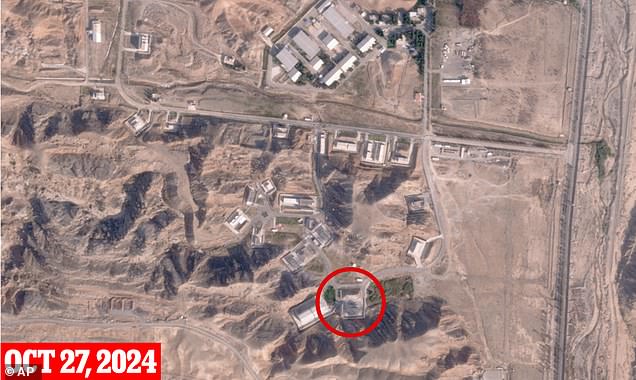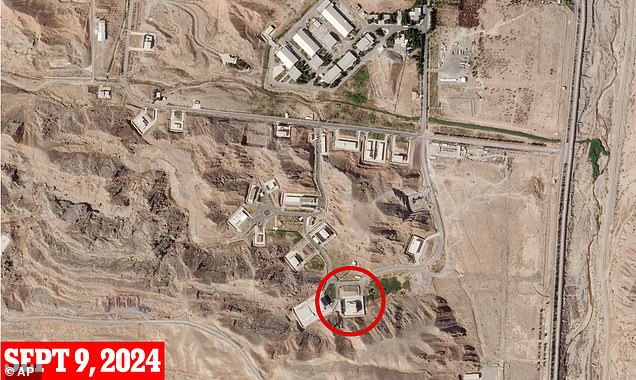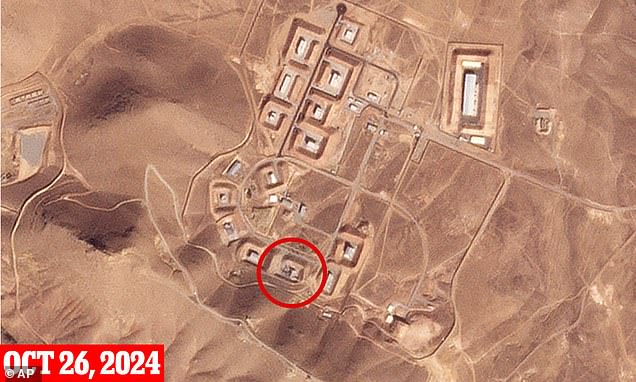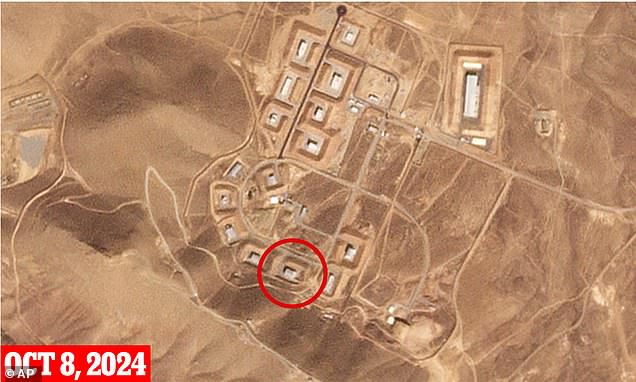Satellite photos show aftermath of Israeli attack on Iran after IDF targeted ‘secret base linked to Tehran’s nuclear weapons programme’
An Israeli attack on Iran damaged facilities at a secret military base that experts have linked in the past to Tehran’s nuclear weapons program and at another site linked to ballistic missile systems, satellite photos show.
Images analyzed by the Associated Press show that some of the damaged buildings are at the Parchin military base, where the International Atomic Energy Agency suspects Iran has in the past conducted tests with explosives that could trigger a nuclear weapon.
Iran has long maintained that its nuclear program is peaceful, although the IAEA, Western intelligence agencies and others say Tehran had an active weapons program until 2003.
The other damage was seen at the nearby Khojir military base, which analysts say hides an underground tunnel system and missile production sites.
The Iranian military has not acknowledged damage at Khojir or Parchin from the Israeli attack early Saturday, although it said the attack killed four Iranian soldiers working in the country’s air defense systems.
Photos of the Israeli army preparing for retaliatory strikes against Iran
These satellite photos from Planet Labs PBC show damaged buildings at the Iranian military base Parchin, outside Tehran, Iran
This satellite photo from Planet Labs PBC shows damaged buildings at the Iranian Khojir military base outside Tehran, Iran
In a statement on X, President Masoud Pezeshkian offered his condolences to the families of the four people killed in the attacks and said Iran would continue to defend itself.
“Enemies of Iran should know that these brave people fearlessly defend their country and will respond to any stupidity with tact and intelligence,” he wrote.
The Israeli military said its planes targeted facilities Iran used to fire the missiles at Israel, as well as surface-to-air missile sites.
Iran’s mission to the United Nations did not immediately respond to a request for comment, nor did the Israeli military.
Iran’s supreme leader has said Israel’s attack “should not be exaggerated or downplayed” but stopped short of calling for retaliation.
Ayatollah Ali Khamenei’s comments on Sunday are the latest to suggest Iran is carefully weighing its response to the attack.
“It is up to the authorities to determine how to transfer the power and will of the Iranian people to the Israeli regime and to take actions that serve the interests of this country and country,” said Khamenei, who has the final say on all major decisions in Iran.
The successive conflicts in the Middle East have raised fears of an all-out regional war pitting Israel and the United States against Iran and its militant allies, which also includes the Houthi rebels in Yemen and armed groups in Syria and Iraq belong.
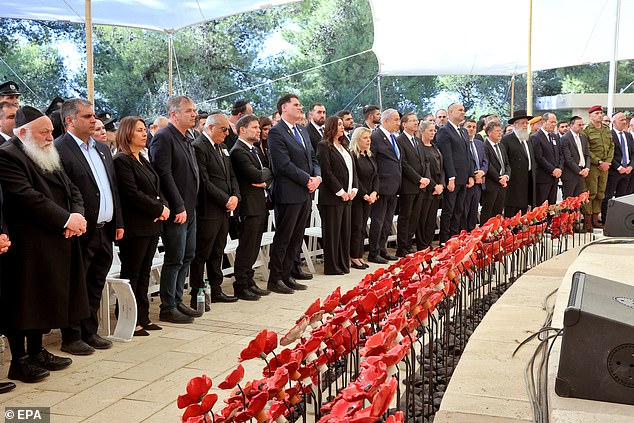
Officials attend a commemoration ceremony marking the one-year anniversary of the Hamas attack that sparked the ongoing war in Gaza on the Hebrew calendar, at the Mount Herzl Military Cemetery in Jerusalem, October 27, 2024
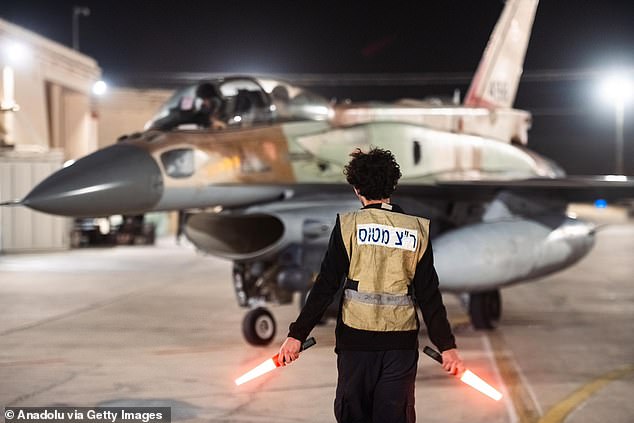
A view of a fighter jet being prepared ahead of the Israeli army’s attack on Iran, on October 26, 2024 in Israel
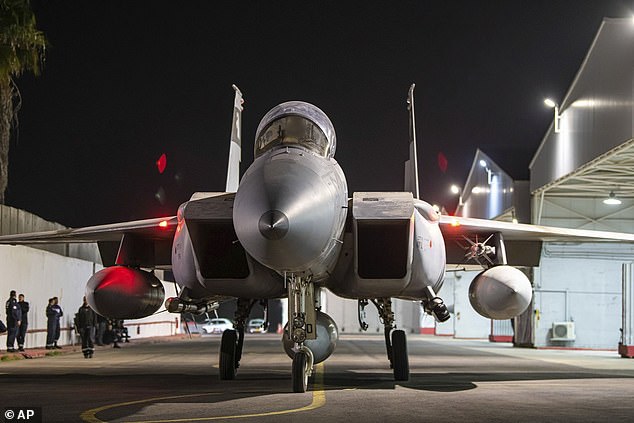
An armed Israeli Air Force plane takes off from an unknown location to attack Iran
Earlier, the Iranian president warned of further attacks on his country after Israel attacked military sites before dawn on Saturday.
In a statement on social media site
“Enemies of Iran should know that these brave people fearlessly defend their country and will respond to any stupidity with tact and intelligence,” he wrote.
The Israeli military said its planes targeted facilities Iran used to fire the missiles at Israel, as well as surface-to-air missile sites.
There was no indication that oil or nuclear sites were hit and Iran insisted the attacks caused only “limited damage.”
US President Joe Biden told reporters that Israel had briefed him before the strikes, saying it appeared “they only hit military targets.”
His government received assurances from Israel in mid-October that it would not hit nuclear and oil facilities. The head of the International Atomic Energy Agency said Iran’s nuclear facilities were not affected.
“I hope this is the end,” Biden said.
US Defense Secretary Lloyd Austin told Israel’s Defense Minister Yoav Gallant that “Iran should not make the mistake of responding to Israel’s attacks, which should mark the end of this exchange,” Maj. Gen. Pat Ryder, the Pentagon’s press secretary.

